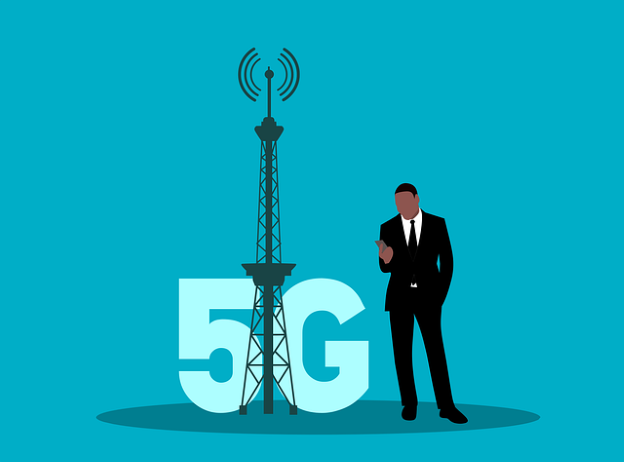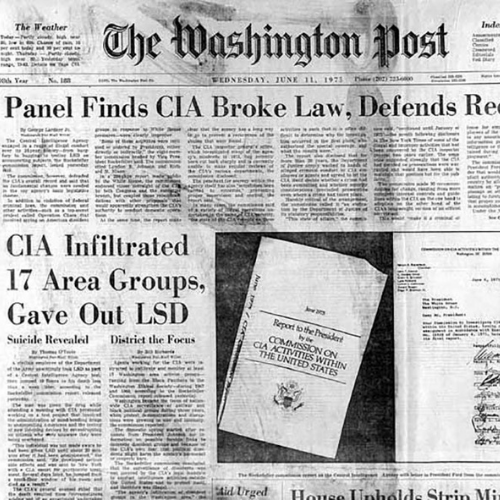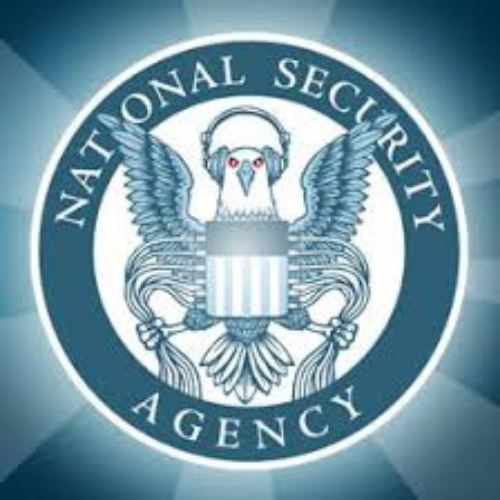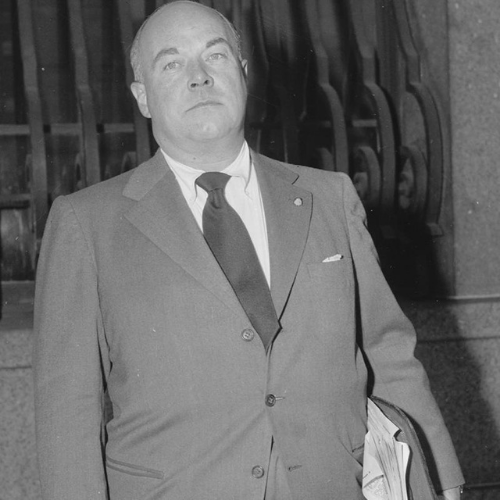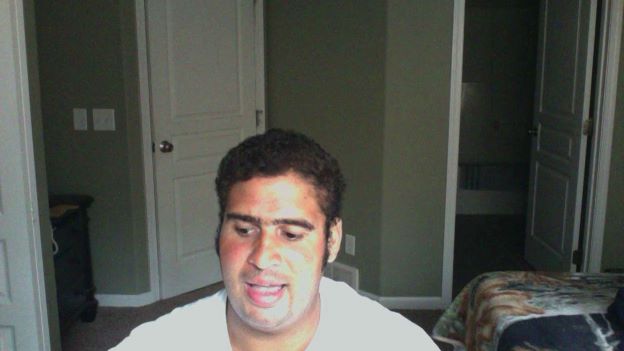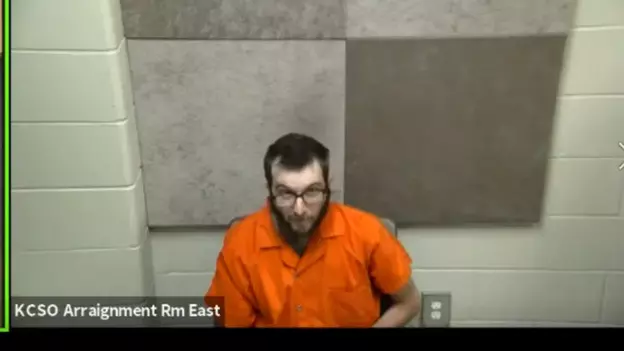- Stalking
- Domestic Violence & Stalking
- § 2261. Interstate domestic violence
- § 2262. Interstate violation of protection order
- § 2263. Pretrial release of defendant
- § 2264. Restitution
- § 2265. Full faith and credit given to protection orders
- § 922. Unlawful acts – [Domestic Violence and Stalking Firearm Prohibitions only]
- Related Offenses
Interstate Stalking
18 USCS § 2261A. Stalking. (2013)
Whoever--
- (1) travels in interstate or foreign commerce or is present within the special maritime and territorial jurisdiction of the United States, or enters or leaves Indian country, with the intent to kill, injure, harass, intimidate, or place under surveillance with intent to kill, injure, harass, or intimidate another person, and in the course of, or as a result of, such travel or presence engages in conduct that--
- (A) places that person in reasonable fear of the death of, or serious bodily injury to--
- (i) that person;
- (ii) an immediate family member (as defined in section 115) of that person; or
- (iii) a spouse or intimate partner of that person; or
- (B) causes, attempts to cause, or would be reasonably expected to cause substantial emotional distress to a person described in clause (i), (ii), or (iii) of subparagraph (A); or
- (A) places that person in reasonable fear of the death of, or serious bodily injury to--
- (2) with the intent to kill, injure, harass, intimidate, or place under surveillance with intent to kill, injure, harass, or intimidate another person, uses the mail, any interactive computer service or electronic communication service or electronic communication system of interstate commerce, or any other facility of interstate or foreign commerce to engage in a course of conduct that--
- (A) places that person in reasonable fear of the death of or serious bodily injury to a person described in clause (i), (ii), or (iii) of paragraph (1)(A); or
- (B) causes, attempts to cause, or would be reasonably expected to cause substantial emotional distress to a person described in clause (i), (ii), or (iii) of paragraph (1)(A),
shall be punished as provided in section 2261(b) of this title.
Domestic Violence & Stalking
18 USCS § 2261. Interstate domestic violence. (2006)
- (a) Offenses.
- (1) Travel or conduct of offender. A person who travels in interstate or foreign commerce or enters or leaves Indian country or within the special maritime and territorial jurisdiction of the United States with the intent to kill, injure, harass, or intimidate a spouse, intimate partner, or dating partner, and who, in the course of or as a result of such travel, commits or attempts to commit a crime of violence against that spouse, intimate partner, or dating partner, shall be punished as provided in subsection (b).
- (2) Causing travel of victim. A person who causes a spouse, intimate partner, or dating partner to travel in interstate or foreign commerce or to enter or leave Indian country by force, coercion, duress, or fraud, and who, in the course of, as a result of, or to facilitate such conduct or travel, commits or attempts to commit a crime of violence against that spouse, intimate partner, or dating partner, shall be punished as provided in subsection (b).
- (b) Penalties. A person who violates this section or section 2261A [18 USCS § 2261A] shall be fined under this title, imprisoned-
- (1) for life or any term of years, if death of the victim results;
- (2) for not more than 20 years if permanent disfigurement or life threatening bodily injury to the victim results;
- (3) for not more than 10 years, if serious bodily injury to the victim results or if the offender uses a dangerous weapon during the offense;
- (4) as provided for the applicable conduct under chapter 109A [18 USCS §§ 2241 et seq.] if the offense would constitute an offense under chapter 109A [18 USCS §§ 2241 et seq.] (without regard to whether the offense was committed in the special maritime and territorial jurisdiction of the United States or in a Federal prison); and
- (5) for not more than 5 years, in any other case, or both fined and imprisoned.
- (6) Whoever commits the crime of stalking in violation of a temporary or permanent civil or criminal injunction, restraining order, no-contact order, or other order described in section 2266 of title 18, United States Code, shall be punished by imprisonment for not less than 1 year.
18 USCS § 2262. Interstate violation of protection order. (2006)
-
- (a) Offenses.
- (1) Travel or conduct of offender. A person who travels in interstate or foreign commerce, or enters or leaves Indian country or within the special maritime and territorial jurisdiction of the United States, with the intent to engage in conduct that violates the portion of a protection order that prohibits or provides protection against violence, threats, or harassment against, contact or communication with, or physical proximity to, another person, or that would violate such a portion of a protection order in the jurisdiction in which the order was issued, and subsequently engages in such conduct, shall be punished as provided in subsection (b).
- (2) Causing travel of victim. A person who causes another person to travel in interstate or foreign commerce or to enter or leave Indian country by force, coercion, duress, or fraud, and in the course of, as a result of, or to facilitate such conduct or travel engages in conduct that violates the portion of a protection order that prohibits or provides protection against violence, threats, or harassment against, contact or communication with, or physical proximity to, another person, or that would violate such a portion of a protection order in the jurisdiction in which the order was issued, shall be punished as provided in subsection (b).
- (b) Penalties. A person who violates this section shall be fined under this title, imprisoned-
- (1) for life or any term of years, if death of the victim results;
- (2) for not more than 20 years if permanent disfigurement or life threatening bodily injury to the victim results;
- (3) for not more than 10 years, if serious bodily injury to the victim results or if the offender uses a dangerous weapon during the offense;
- (4) as provided for the applicable conduct under chapter 109A [18 USCS §§ 2241 et seq.] if the offense would constitute an offense under chapter 109A (without regard to whether the offense was committed in the special maritime and territorial jurisdiction of the United States or in a Federal prison); and
- (5) for not more than 5 years, in any other case, or both fined and imprisoned.
18 USCS § 2263. Pretrial release of defendant. (1994)
In any proceeding pursuant to section 3142 [18 USCS § 3142] for the purpose of determining whether a defendant charged under this chapter [18 USCS §§ 2261 et seq.] shall be released pending trial, or for the purpose of determining conditions of such release, the alleged victim shall be given an opportunity to be heard regarding the danger posed by the defendant.
18 USCS § 2264. Restitution. (1996)
- (a) In general. Notwithstanding section 3663 or 3663A [18 USCS § 3663 or 3663A], and in addition to any other civil or criminal penalty authorized by law, the court shall order restitution for any offense under this chapter [18 USCS §§ 2261 et seq.].
- (b) Scope and nature of order.
- (1) Directions. The order of restitution under this section shall direct the defendant to pay the victim (through the appropriate court mechanism) the full amount of the victim's losses as determined by the court pursuant to paragraph (2).
- (2) Enforcement. An order of restitution under this section shall be issued and enforced in accordance with section 3664 [18 USCS § 3664] in the same manner as an order under section 3663A [18 USCS § 3663A].
- (3) Definition. For purposes of this subsection, the term "full amount of the victim's losses" includes any costs incurred by the victim for-
- (A) medical services relating to physical, psychiatric, or psychological care;
- (B) physical and occupational therapy or rehabilitation;
- (C) necessary transportation, temporary housing, and child care expenses;
- (D) lost income;
- (E) attorneys' fees, plus any costs incurred in obtaining a civil protection order; and
- (F) any other losses suffered by the victim as a proximate result of the offense.
- (4) Order mandatory.
- (A) The issuance of a restitution order under this section is mandatory.
- (B) A court may not decline to issue an order under this section because of-
- (i) the economic circumstances of the defendant; or
- (ii) the fact that a victim has, or is entitled to, receive compensation for his or her injuries from the proceeds of insurance or any other source.
- (c) Victim defined. For purposes of this section, the term "victim" means the individual harmed as a result of a commission of a crime under this chapter [18 USCS §§ 2261 et seq.], including, in the case of a victim who is under 18 years of age, incompetent, incapacitated, or deceased, the legal guardian of the victim or representative of the victim's estate, another family member, or any other person appointed as suitable by the court, but in no event shall the defendant be named as such representative or guardian.
18 USCS § 2265. Full faith and credit given to protection orders. (2006)
- (a) Full faith and credit. Any protection order issued that is consistent with subsection (b) of this section by the court of one State, Indian tribe, or territory (the issuing State, Indian tribe, or territory) shall be accorded full faith and credit by the court of another State, Indian tribe, or territory (the enforcing State, Indian tribe, or territory) and enforced by the court and law enforcement personnel of the other State, Indian tribal government or Territory [territory] as if it were the order of the enforcing State, Indian tribe, or territory.
- (b) Protection order. A protection order issued by a State, tribal, or territorial court is consistent with this subsection if-
- (1) such court has jurisdiction over the parties and matter under the law of such State, Indian tribe, or territory; and
- (2) reasonable notice and opportunity to be heard is given to the person against whom the order is sought sufficient to protect that person's right to due process. In the case of ex parte orders, notice and opportunity to be heard must be provided within the time required by State, tribal, or territorial law, and in any event within a reasonable time after the order is issued, sufficient to protect the respondent's due process rights.
- (c) Cross or counter petition. A protection order issued by a State, tribal, or territorial court against one who has petitioned, filed a complaint, or otherwise filed a written pleading for protection against abuse by a spouse or intimate partner is not entitled to full faith and credit if-
- (1) no cross or counter petition, complaint, or other written pleading was filed seeking such a protection order; or
- (2) a cross or counter petition has been filed and the court did not make specific findings that each party was entitled to such an order.
- (d) Notification and registration.
- (1) Notification. A State, Indian tribe, or territory according full faith and credit to an order by a court of another State, Indian tribe, or territory shall not notify or require notification of the party against whom a protection order has been issued that the protection order has been registered or filed in that enforcing State, tribal, or territorial jurisdiction unless requested to do so by the party protected under such order.
- (2) No prior registration or filing as prerequisite for enforcement. Any protection order that is otherwise consistent with this section shall be accorded full faith and credit, notwithstanding failure to comply with any requirement that the order be registered or filed in the enforcing State, tribal, or territorial jurisdiction.
- (3) Limits on internet publication of registration information. A State, Indian tribe, or territory shall not make available publicly on the Internet any information regarding the registration, filing of a petition for, or issuance of a protection order, restraining order or injunction [, restraining order, or injunction] in either the issuing or enforcing State, tribal or territorial jurisdiction, if such publication would be likely to publicly reveal the identity or location of the party protected under such order. A State, Indian tribe, or territory may share court-generated and law enforcement-generated information contained in secure, governmental registries for protection order enforcement purposes.
- (e) Tribal court jurisdiction. For purposes of this section, a tribal court shall have full civil jurisdiction to enforce protection orders, including authority to enforce any orders through civil contempt proceedings, exclusion of violators from Indian lands, and other appropriate mechanisms, in matters arising within the authority of the tribe.
18 USCS § 922. Unlawful acts. (2005) – [Domestic Violence and Stalking Firearm Prohibitions only]
- (a) – (b)
- (g) It shall be unlawful for any person-
- (1) – (7)
- (8) who is subject to a court order that-
- (A) was issued after a hearing of which such person received actual notice, and at which such person had an opportunity to participate;
- (B) restrains such person from harassing, stalking, or threatening an intimate partner of such person or child of such intimate partner or person, or engaging in other conduct that would place an intimate partner in reasonable fear of bodily injury to the partner or child; and
- (C)
- (i) includes a finding that such person represents a credible threat to the physical safety of such intimate partner or child; or
- (ii) by its terms explicitly prohibits the use, attempted use, or threatened use of physical force against such intimate partner or child that would reasonably be expected to cause bodily injury; or
- (9) who has been convicted in any court of a misdemeanor crime of domestic violence, to ship or transport in interstate or foreign commerce, or possess in or affecting commerce, any firearm or ammunition; or to receive any firearm or ammunition which has been shipped or transported in interstate or foreign commerce.
- (h) – (z)
Related Offenses
18 USCS § 875. Interstate communications. (1994)
- (a) Whoever transmits in interstate or foreign commerce any communication containing any demand or request for a ransom or reward for the release of any kidnapped person, shall be fined under this title or imprisoned not more than twenty years, or both.
- (b) Whoever, with intent to extort from any person, firm, association, or corporation, any money or other thing of value, transmits in interstate or foreign commerce any communication containing any threat to kidnap any person or any threat to injure the person of another, shall be fined under this title or imprisoned not more than twenty years, or both.
- (c) Whoever transmits in interstate or foreign commerce any communication containing any threat to kidnap any person or any threat to injure the person of another, shall be fined under this title or imprisoned not more than five years, or both.
- (d) Whoever, with intent to extort from any person, firm, association, or corporation, any money or other thing of value, transmits in interstate or foreign commerce any communication containing any threat to injure the property or reputation of the addressee or of another or the reputation of a deceased person or any threat to accuse the addressee or any other person of a crime, shall be fined under this title or imprisoned not more than two years, or both.
47 USCS § 223. Obscene or harassing telephone calls in the District of Columbia or in interstate or foreign communications. (2006)
- (a) Prohibited acts generally. Whoever-
- (1) in interstate or foreign communications-
- (A) by means of a telecommunications device knowingly-
- (i) makes, creates, or solicits, and
- (ii) initiates the transmission of, any comment, request, suggestion, proposal, image, or other communication which is obscene or child pornography, with intent to annoy, abuse, threaten, or harass another person;
- (B) by means of a telecommunications device knowingly-
- (i) makes, creates, or solicits, and
- (ii) initiates the transmission of, any comment, request, suggestion, proposal, image, or other communication which is obscene or child pornography, knowing that the recipient of the communication is under 18 years of age, regardless of whether the maker of such communication placed the call or initiated the communication;
- (C) makes a telephone call or utilizes a telecommunications device, whether or not conversation or communication ensues, without disclosing his identity and with intent to annoy, abuse, threaten, or harass any person at the called number or who receives the communications;
- (D) makes or causes the telephone of another repeatedly or continuously to ring, with intent to harass any person at the called number; or
- (E) makes repeated telephone calls or repeatedly initiates communication with a telecommunications device, during which conversation or communication ensues, solely to harass any person at the called number or who receives the communication; or
- (A) by means of a telecommunications device knowingly-
- (2) knowingly permits any telecommunications facility under his control to be used for any activity prohibited by paragraph (1) with the intent that it be used for such activity, shall be fined under title 18, United States Code, or imprisoned not more than two years, or both.
- (1) in interstate or foreign communications-
- (b) Prohibited acts for commercial purposes; defense to prosecution.
- (1) Whoever knowingly-
- (A) within the United States, by means of telephone, makes (directly or by recording device) any obscene communication for commercial purposes to any person, regardless of whether the maker of such communication placed the call; or
- (B) permits any telephone facility under such person's control to be used for an activity prohibited by subparagraph (A), shall be fined in accordance with title 18, United States Code, or imprisoned not more than two years, or both.
- (2) Whoever knowingly-
- (A) within the United States, by means of telephone, makes (directly or by recording device) any indecent communication for commercial purposes which is available to any person under 18 years of age or to any other person without that person's consent, regardless of whether the maker of such communication placed the call; or
- (B) permits any telephone facility under such person's control to be used for an activity prohibited by subparagraph (A), shall be fined not more than $ 50,000 or imprisoned not more than six months, or both.
- (3) It is a defense to prosecution under paragraph (2) of this subsection that the defendant restricted access to the prohibited communication to persons 18 years of age or older in accordance with subsection (c) of this section and with such procedures as the Commission may prescribe by regulation.
- (4) In addition to the penalties under paragraph (1), whoever, within the United States, intentionally violates paragraph (1) or (2) shall be subject to a fine of not more than $ 50,000 for each violation. For purposes of this paragraph, each day of violation shall constitute a separate violation.
- (5)
-
- (A) In addition to the penalties under paragraphs (1), (2), and (5), whoever, within the United States, violates paragraph (1) or (2) shall be subject to a civil fine of not more than $ 50,000 for each violation. For purposes of this paragraph, each day of violation shall constitute a separate violation.
- (B) A fine under this paragraph may be assessed either-
- (i) by a court, pursuant to civil action by the Commission or any attorney employed by the Commission who is designated by the Commission for such purposes, or
- (ii) by the Commission after appropriate administrative proceedings.
-
- (6) The Attorney General may bring a suit in the appropriate district court of the United States to enjoin any act or practice which violates paragraph (1) or (2). An injunction may be granted in accordance with the Federal Rules of Civil Procedure.
- (1) Whoever knowingly-
- (c) Restriction on access to subscribers by common carriers; judicial remedies respecting restrictions.
-
- (1) A common carrier within the District of Columbia or within any State, or in interstate or foreign commerce, shall not, to the extent technically feasible, provide access to a communication specified in subsection (b) from the telephone of any subscriber who has not previously requested in writing the carrier to provide access to such communication if the carrier collects from subscribers an identifiable charge for such communication that the carrier remits, in whole or in part, to the provider of such communication.
- (2) Except as provided in paragraph (3), no cause of action may be brought in any court or administrative agency against any common carrier, or any of its affiliates, including their officers, directors, employees, agents, or authorized representatives on account of-
- (A) any action which the carrier demonstrates was taken in good faith to restrict access pursuant to paragraph (1) of this subsection; or
- (B) any access permitted-
- (i) in good faith reliance upon the lack of any representation by a provider of communications that communications provided by that provider are communications specified in subsection (b), or
- (ii) because a specific representation by the provider did not allow the carrier, acting in good faith, a sufficient period to restrict access to communications described in subsection (b).
- (3) Notwithstanding paragraph (2) of this subsection, a provider of communications services to which subscribers are denied access pursuant to paragraph (1) of this subsection may bring an action for a declaratory judgment or similar action in a court. Any such action shall be limited to the question of whether the communications which the provider seeks to provide fall within the category of communications to which the carrier will provide access only to subscribers who have previously requested such access.
-
- (d) Sending or displaying offensive material to persons under 18. Whoever-
- (1) in interstate or foreign communications knowingly-
- (A) uses an interactive computer service to send to a specific person or persons under 18 years of age, or
- (B) uses any interactive computer service to display in a manner available to a person under 18 years of age, any comment, request, suggestion, proposal, image, or other communication that is obscene or child pornography, regardless of whether the user of such service placed the call or initiated the communication; or
- (2) knowingly permits any telecommunications facility under such person's control to be used for an activity prohibited by paragraph (1) with the intent that it be used for such activity, shall be fined under title 18, United States Code, or imprisoned not more than two years, or both.
- (1) in interstate or foreign communications knowingly-
- (e) Defenses. In addition to any other defenses available by law:
- (1) No person shall be held to have violated subsection (a) or (d) solely for providing access or connection to or from a facility, system, or network not under that person's control, including transmission, downloading, intermediate storage, access software, or other related capabilities that are incidental to providing such access or connection that does not include the creation of the content of the communication.
- (2) The defenses provided by paragraph (1) of this subsection shall not be applicable to a person who is a conspirator with an entity actively involved in the creation or knowing distribution of communications that violate this section, or who knowingly advertises the availability of such communications.
- (3) The defenses provided in paragraph (1) of this subsection shall not be applicable to a person who provides access or connection to a facility, system, or network engaged in the violation of this section that is owned or controlled by such person.
- (4) No employer shall be held liable under this section for the actions of an employee or agent unless the employee's or agent's conduct is within the scope of his or her employment or agency and the employer (A) having knowledge of such conduct, authorizes or ratifies such conduct, or (B) recklessly disregards such conduct.
- (5) It is a defense to a prosecution under subsection (a)(1)(B) or (d), or under subsection (a)(2) with respect to the use of a facility for an activity under subsection (a)(1)(B) that a person-
- (A) has taken, in good faith, reasonable, effective, and appropriate actions under the circumstances to restrict or prevent access by minors to a communication specified in such subsections, which may involve any appropriate measures to restrict minors from such communications, including any method which is feasible under available technology; or
- (B) has restricted access to such communication by requiring use of a verified credit card, debit account, adult access code, or adult personal identification number.
- (6) The Commission may describe measures which are reasonable, effective, and appropriate to restrict access to prohibited communications under subsection (d). Nothing in this section authorizes the Commission to enforce, or is intended to provide the Commission with the authority to approve, sanction, or permit, the use of such measures. The Commission shall have no enforcement authority over the failure to utilize such measures. The Commission shall not endorse specific products relating to such measures. The use of such measures shall be admitted as evidence of good faith efforts for purposes of paragraph (5) in any action arising under subsection (d). Nothing in this section shall be construed to treat interactive computer services as common carriers or telecommunications carriers.
- (f) Violations of law required; commercial entities, nonprofit libraries, or institutions of higher education.
- (1) No cause of action may be brought in any court or administrative agency against any person on account of any activity that is not in violation of any law punishable by criminal or civil penalty, and that the person has taken in good faith to implement a defense authorized under this section or otherwise to restrict or prevent the transmission of, or access to, a communication specified in this section.
- (2) No State or local government may impose any liability for commercial activities or actions by commercial entities, nonprofit libraries, or institutions of higher education in connection with an activity or action described in subsection (a)(2) or (d) that is inconsistent with the treatment of those activities or actions under this section: Provided, however, That nothing herein shall preclude any State or local government from enacting and enforcing complementary oversight, liability, and regulatory systems, procedures, and requirements, so long as such systems, procedures, and requirements govern only intrastate services and do not result in the imposition of inconsistent rights, duties or obligations on the provision of interstate services. Nothing in this subsection shall preclude any State or local government from governing conduct not covered by this section.
- (g) Application and enforcement of other Federal law. Nothing in subsection (a), (d), (e), or (f) or in the defenses to prosecution under subsection (a) or (d) shall be construed to affect or limit the application or enforcement of any other Federal law.
- (h) Definitions. For purposes of this section--
- (1) The use of the term "telecommunications device" in this section-
- (A) shall not impose new obligations on broadcasting station licensees and cable operators covered by obscenity and indecency provisions elsewhere in this Act [47 USCS §§ 151 et seq.];
- (B) does not include an interactive computer service; and
- (C) in the case of subparagraph (C) of subsection (a)(1), includes any device or software that can be used to originate telecommunications or other types of communications that are transmitted, in whole or in part, by the Internet (as such term is defined in section 1104 of the Internet Tax Freedom Act (47 U.S.C. 151 note)).
- (2) The term "interactive computer service" has the meaning provided in section 230(f)(2) [47 USCS § 230(f)(2)].
- (3) The term "access software" means software (including client or server software) or enabling tools that do not create or provide the content of the communication but that allow a user to do any one or more of the following:
- (A) filter, screen, allow, or disallow content;
- (B) pick, choose, analyze, or digest content; or
- (C) transmit, receive, display, forward, cache, search, subset, organize, reorganize, or translate content.
- (4) The term "institution of higher education" has the meaning provided in section 101 of the Higher Education Act of 1965 [20 USCS § 1001].
- (5) The term "library" means a library eligible for participation in State-based plans for funds under title III of the Library Services and Construction Act (20 U.S.C. 355e et seq.).
- (1) The use of the term "telecommunications device" in this section-

